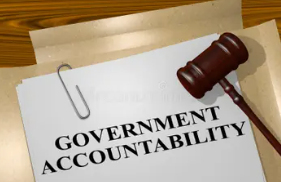Several South Sudanese citizens from across the country who talked to Radio Tamazuj on Wednesday have expressed the need to practice their constitutional rights to scrutinize and monitor all government activities and programs as stipulated in the Transitional Constitution of the Republic of South Sudan (2011).
Edward Ugwak, a resident of Western Bahr el Ghazal State, said there are always misunderstandings between the government and the citizens because government authorities deliberately exclude citizens from every decision-making process at all levels.
“In my own opinion, citizens are not enlightened and involved in every decision taken by the government. Indeed, the government may intend to do something good, but the lack of inclusion of citizens in the process early creates misunderstanding between the people and the government,” he stated. “Secondly, the government does not reverse its wrong orders even though the people call for the revocation of the decision passed by the government.”
Monica Mawein Kuol of Northern Bahr el Ghazal State said the current government does not respond to the people’s calls, saying that the people only want services delivered.
“The citizens have rights, but they don’t have the power to do anything because there is no one to listen to their calls, and their only need is delivery of services,” she said. “The current government is not implementing people’s demands even though people talk on different media channels, including the UN-run Radio Miraya and others.”
For her part, Alei Manyiel, a dweller of the Ruweng Administrative Area, said the relations between the government and the people of South Sudan are “sour.”
“There are no avenues for citizens to reach the government except media outlets through which they can express their opinions,” she lamented.
A Juba-based lawyer, Deng John, said the constitution gives power to citizens to hold the government accountable and to scrutinize and monitor its activities.
“The People’s power to scrutinize and monitor the government is stipulated in Article 32 of the Transitional Constitution of the Republic of South Sudan (2011), and the article grants the people access to information in every government institution,” he stated.
Meanwhile, Bona Malual, the chairperson of the Warrap State Civil Society Organizations Network, urged the Government of South Sudan to create a conducive environment for access to information and promote freedom of expression so that the citizens can express themselves without fear.
“The citizens are entitled to access to information on every activity implemented by the government according to the constitution because the citizens have the right to freedom of expression,” he said.
Malual called on the government to ease restrictions on fundamental freedoms.




